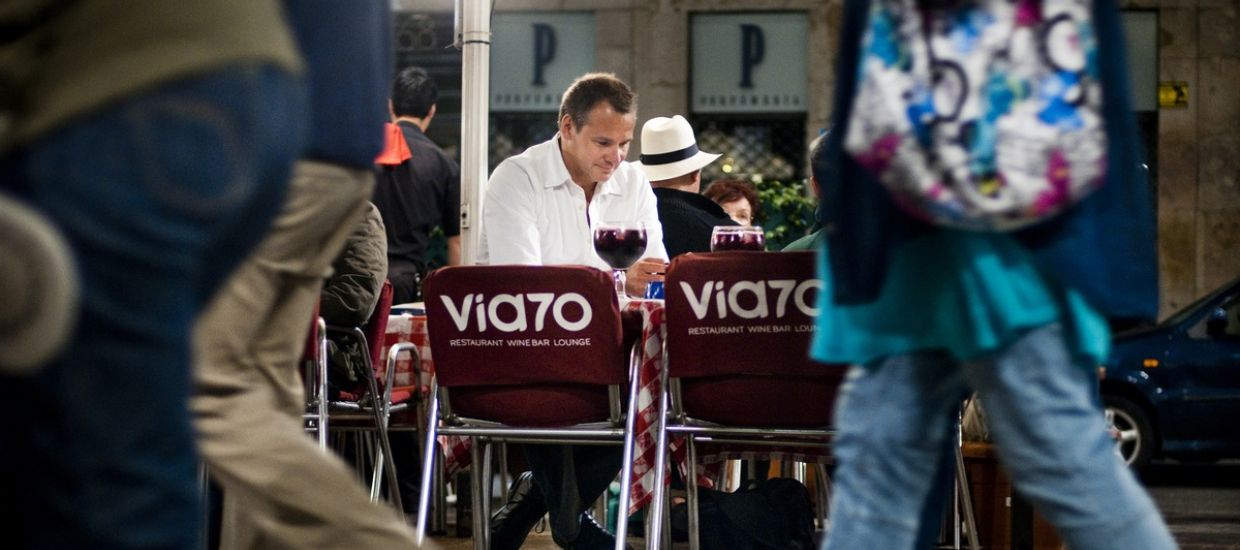Couple, Tied to Putin Foes, Fights Deportation
A week before Christmas, Homeland Security agents pulled a well-dressed Russian couple from their vehicle at a tollbooth near the Canadian border, where they were hoping to seek political asylum. The two were placed in handcuffs and flown to Washington where officials prepared to deport them to Russia to face charges of embezzling millions of dollars.
Alexandre Konanykhine and his wife, Elena Gratcheva, argued that their lives would be in danger in Russia. But U.S. officials rejected those pleas, and the two were flown from Washington to New York for deportation. On Dec. 22, minutes before they were to be put aboard a flight to Moscow, agents escorting them received an urgent telephone call. A federal judge had ordered a stay of the deportation.
Now Konanykhine is in jail in Arlington, awaiting the next twist in a decade-long, roller-coaster ride through the U.S. judicial system. His wife was freed on Dec. 24.
Since arriving in the United States with his wife in 1993, Konanykhine has lived a life of extremes. He has gone from being a jet-setting Internet banker with an apartment in the Watergate and matching his-and-hers BMWs, to a prisoner, to a political refugee, to a successful businessman again and back to a prisoner, awaiting deportation.
Along the way, he has made and lost millions of dollars and been the target of CIA and FBI investigators, a Russian military prosecutor and, according to court testimony, a Russian mafia hit man. At one point in his immigration proceedings, a frustrated judge threw up his hands, saying the entire case "is such a stretch that it might be a novel by Tom Clancy."
Konanykhine has had close dealings with opponents of President Vladimir Putin and contends that, in continuing the deportation proceedings, the U.S. government is helping Putin's efforts to suppress dissent. U.S. officials deny the case has political overtones.
The current episode in his case began on Nov. 20, when a Justice Department appeals panel ruled that he faced no risk of political persecution if he were sent back to Russia in response to a long-standing request from the government.
Garrison Courtney, a spokesman for Homeland Security, said agents from the agency then went looking for Konanykhine and learned he had "disappeared from his residence and at that point was determined to be a flight risk." Changing residence without notifying the government is a breach of an agreement reached between the government and Konanykhine in 1997, Courtney said.
"There was a final order for Konanykhine's removal [from the United States], and we are bound by law to follow that," Courtney said. "We are following the law."
Konanykhine's attorney, Michael Maggio, counters that his client had 10 days to notify the government of his change of residence, and that deadline had not expired.
A Homeland Security official said U.S. officials learned of Konanykhine's plans to seek asylum in Canada from the Canadian government, which, under an agreement with the United States, cannot grant asylum to someone who has been rejected for it in the United States.
Konanykhine and Gratcheva said in affidavits that they were driving toward the Peace Bridge, a border crossing in Buffalo, N.Y., when more than a dozen masked Homeland agents dragged them from their vehicle.
Courtney said that no excessive force was used and that there were only four agents, none of them wearing masks. He said agents only wore masks in "extraordinary circumstances, and there wasn't anything out of the ordinary about this."
Attorney Maggio said the arrest violated the agreement his client had with the government allowing him to remain in the United States on parole and work "pending final resolution of his immigration proceedings."
"I have never seen a case like this," Maggio said. "All my client wants to do is leave the United States, which is what they want him to do. You have to wonder why the government is spending countless resources to keep a guy from leaving, especially when the country is on high alert for terrorist attacks. It is almost Sovietesque."
The deportation to Moscow was put on hold at the last minute by Judge T.S. Ellis III of U.S. District Court in Alexandria. At an emergency hearing on Dec. 22, he said it was "unseemly to the point of being sinister the haste with which both the plaintiff and his wife were being shepherded or hustled out of the country."
Gratcheva said that Homeland officials were waging a "personal vendetta" against her and her husband. "It is like we have an execution order hanging over us all the time," she said. "As soon as we go back, we have no doubt Alex will be tortured and killed. There is no one left there to say a word in our defense. "
A decade ago, as a gifted student at the Moscow Physics and Technical Institute, Konanykhine was one of the young entrepreneurs who made a fortune in the sale of state assets as the Soviet superpower imploded. By his own account, he became a multimillionaire in his mid-twenties, living a life of luxury in Russia and joining the inner circle of President Boris Yeltsin.
In those days, Konanykhine collaborated with Mikhail Khodorkovsky, who went on to become Russia's wealthiest man and a major shareholder of the huge Yukos oil company.
In October, Khodorkovsky was hauled off an airplane by armed Russian commandos and is in prison there. His arrest is widely viewed as political revenge for his funding of parties opposed to Putin.
Konanykhine's high living in Russia ended in the early 1990s, when he had a falling-out with his business partners. In 1993, Russian law enforcement officials accused him of embezzling millions of dollars. He responded that he was being persecuted for exposing corruption in Russia and that he had prevented millions from being stolen.
In late 1993, Konanykhine and his wife moved to Washington. But he caught the attention of U.S. and British officials when he set up the European Union Bank, an Internet bank in the Caribbean that U.S. and British investigators say helped illegally siphon millions of dollars out of Russia.
Konanykhine denies doing anything illegal and says he was trying to create a legitimate offshore bank. Khodorkovsky was his main backer in the enterprise.
The CIA became interested in Konanykhine when it received reports that he was involved in efforts to buy citizenship for several dozen Russian nationals in Latin American countries as part of a plan to invest $1 billion in Russia funds.
He was arrested in his Watergate co-op in June 1996 and charged with immigration fraud. The Russian government demanded his extradition on the old embezzlement charges, saying he had stolen $8.1 million and labeling him Russia's most-wanted criminal.
But in February 1999, Konanykhine was granted political asylum, in part because an FBI agent testified that the Russian mob in New York had a contract out to kill him. He moved to New York and set up an Internet advertising business, KMGI Studios. The U.S. government appealed the ruling granting him asylum. On Nov. 20, it won and moved to deport him.
In an e-mail before he was arrested, Konanykhine said he believed his deportation order was directly related to the arrest in Russia of his longtime associate Khodorkovsky. "Putin is trying to destroy not only Khodorkovsky but his team," Konanykhine wrote. "A number of his partners and vice presidents are being railroaded. I was both his partner and VP, so getting this decision now, after 11 years of my wife and I living here and seven years after my immigration case started, does seem to be too much of a coincidence to me."


